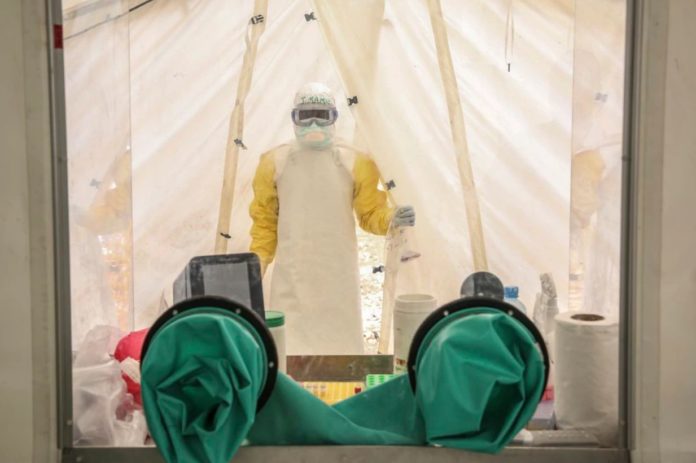Researchers at the University of Osaka discovered a biological mechanism that causes diabetes patients to develop additional problems. What do they advise?
Insulin is a hormone generated by the human pancreas that helps to keep blood glucose levels in check. It was discovered 100 years ago. A person’s glucose levels are affected when they have diabetes. If the individual is infected with the coronavirus, not being controlled can be a risk factor for developing severe COVID-19, which is why it is critical that they receive the whole vaccine schedule as soon as feasible.
In this study, they found a mechanism that contributes to people with diabetes suffering from these more severe conditions.
SARS-COV-2 virus that causes COVID-19 disease binds to a cell surface protein whose expression is promoted by high levels of insulin in the blood in older persons, those with obesity, and those with diabetes, according to researchers from the University of Osaka in Japan.
Prior to the pandemic, it was widely accepted that managing blood insulin levels within stringent and healthy norms should be a daily objective for diabetics. However, Japanese researchers have discovered that regulating blood insulin levels can even help minimize the incidence of COVID-19.
According to a study published this month in the American Diabetes Association’s journal Diabetes, Japanese researchers revealed that a protein called GRP78 assists the virus that causes COVID-19 in binding to and entering cells.
GRP78 is an adipose tissue protein (that is, in fat). People who are older, obese, or diabetic are more prone to COVID-19, and while the causes for this are still unknown, the Osaka University researchers shed light on the issue.
“It was recently suggested that adipose tissue might be a major reservoir for SARS-CoV-2, the virus that causes COVID-19,” said lead study author Jihoon Shin.
“Because of this, we wanted to investigate whether there is any link between the excess adipose tissue in older, obese, and diabetic patients and their vulnerability to COVID-19.”
To do this, the researchers investigated GRP78, which has recently been implicated in the interaction of the coronavirus with human cells. The virus enters human cells primarily by a spike protein on the viral surface that binds to angiotensin-converting enzyme 2 (ACE2), a protein on the human cell surface.
Shin and his colleagues discovered that the Spiga protein can also connect to GRP78 directly. They also discovered that the presence of GRP78 promotes ACE2 binding. They studied the amount of GRP78 protein present in the tissues of aged, obese, and diabetic individuals to gain an understanding of the role of GRP78 in COVID-19 susceptibility.
“The results were very clear,” explained lead author Iichiro Shimomura. “GRP78 gene expression was highly upregulated in adipose tissue, and was elevated with increasing age, obesity, and diabetes.”
Increased insulin levels in the blood are known to be connected with ageing, obesity, and diabetes. The researchers wondered if insulin played a role in the expression of GRP78. The researchers discovered that exposing the cells to insulin increased the production of the GRP78 protein. What’s more, it was discovered that therapy with commonly prescribed antidiabetic medicines that lower insulin levels were able to lower the level of GRP78 expression. They went on to demonstrate that exercise and calorie restriction reduced GRP78 levels in adipose tissue in a mouse model.
“Our findings suggest that a high blood insulin level is an important risk factor that can predispose older, obese, and diabetic individuals to COIVD-19 infection. As such, controlling blood insulin with pharmacological interventions or with environmental interventions, such as exercise, could help lower these patients’ risk,” said Shin.
The findings of the Japanese study provide important information on how to lower the risk of infection in these susceptible people, taking into account the pandemic’s global health, social, and economic consequences. GRP78 expression could be reduced through pharmaceutical or environmental therapies, which could improve patient outcomes.
Another study published in the Journal of Biological Chemistry in May by researchers from the University of Southeastern California in the United States offered information on this protein linked to the COVID-19 pandemic. They speculated on how medicines that target the GRP78 protein could provide future protection against COVID-19 and other developing coronaviruses.
GRP78 is a type of molecule that contributes in the proper folding of proteins, particularly in stressed cells. Viruses can, however, hijack these chaperones and use them to infiltrate target cells, where they proliferate and propagate. GRP78 has also been linked to the spread of other deadly viruses like Ebola and Zika. They discovered that GRP78 acts as a co-receptor and stabilising agent between ACE2 and SARS-CoV-2, helping the virus to better recognize its Spike protein and enter host cells more efficiently.
That study was the first to show that GRP78 attaches to the coronavirus Spike protein in cells, proving that computer model predictions were correct. Furthermore, computer modelling revealed that the more virulent coronavirus strains bind to GRP78 more.
Image Credit: Getty
You were reading: Insulin control in obese diabetics may help lower severe COVID-19 risk
